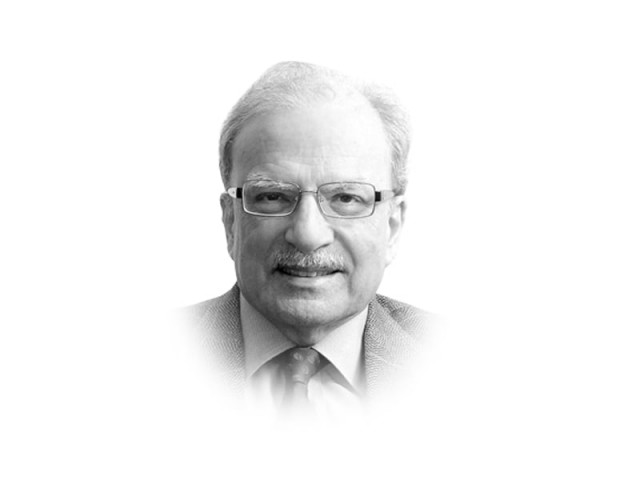Poor governance and citizen’s discomfort
Pakistan has given scant attention to providing good governance not only in recent times but throughout its history.

Since poor governance has a negative impact on economic performance, this is one reason why the rate of economic growth has stalled in Pakistan. It has contributed to Pakistan not achieving the rates of GDP growth attained by other large South Asian economies. In addition to poor governance, a number of structural problems prevented the country from reaching its potential. These included a high rate of population growth; low rates of domestic savings and consequently, inadequate investment, not only in human capital but also in infrastructure, industry and agriculture; weak industrial and export structures, dominated by products based on cotton; an ambivalent attitude towards the private sector and the absence of liberal economic framework until the early 1990s; high levels of defence spending; poor resource mobilisation by the government; underdeveloped institutions of governance; and highly centralised decision-making. Among these contributors to economic growth, poor governance is one of the more important ones.
Since 2008, the country has been limping through a period of political transition. The rule by the army, that had by then governed for 33 years out of the 61 years of independence, gave way to that by the elected representatives of the people. There was excitement in the air; there was expectation that through their representatives, the country’s citizens will sit at the table where important public policy decisions were being taken. There was optimism that the pace, at which political transition then underway, would proceed smoothly and would usher in a government that would be more responsive to the needs of the citizenry. However, within a couple of months of its induction into office, the coalition government that had assumed office in Islamabad collapsed and the country entered a period of political uncertainty that has lasted to this date. Political uncertainty contributes to economic stress; people willing to invest in the economy are unlikely to invest their capital when risks are high. Political turmoil and poor governance were to take a heavy economic toll.
Pakistan has given scant attention to the need to provide good governance not only in recent times but throughout its history. However, the country has reached the point where the issue of governance can no longer be ignored by the ruling establishment. The need for good governance acquired special significance as the streets in Middle East exploded and brought about regime change in four countries that had been governed for decades by the same heads of state and relying on the support of the same sets of people. A number of other countries in the region have also come under pressure. The street and the public square in the Middle East have sent out two clear messages to those who govern. First: the people subjected to decades of rule in which they had no role to play and in which their welfare was simply ignored have arrived at the limits of their patience. The other message was that in the modern means of communication, the citizenry have found the tools to get organised, agitate and put pressure on the ruling establishment to mend its ways. These two messages have relevance for Pakistan as well.
The quality of governance in Pakistan is as poor as that in the Middle Eastern countries, contributing to a major economic downturn. Poor economic performance, however, has not prevented the well-to-do from becoming rich, leaving the rest of the citizenry way behind. Political scientists from the days of Samuel P. Huntington have been emphasising that relative deprivation — their term — can be a powerful sentiment for forcing political change. It has been deployed in Pakistan’s torrid history for bringing about regime change. The governments headed by President Ayub Khan and Prime Minister Zulfikar Ali Bhutto fell largely because the people were unhappy with what they had received from the ruling establishment.
When the youth get agitated of what lies in their future, they are likely to raise their voice and if the voice was is heard, they are likely to take to the streets and assemble in public squares. This is precisely what happened in Tunisia and Egypt. These countries were not spared the pressure of the street even though their economies were growing at a brisk pace. In fact, as Political scientist, Samuel Huntington wrote a number of years ago, the feeling of relative deprivation becomes acute when the economy is growing rapidly but most of the incremental income is captured by narrow economic and political elites. Absence of good governance, therefore, could — and often does — result in political instability. An open political system and vibrant media serve as safety valves but when the pressure being built up cannot be released, there can be trouble for the establishment. It would appear that the movement launched by Imran Khan and his Tehreek-e-Insaf has got traction because of the growing discontent among the citizenry, in particular among the country’s youth. It is worth noting that corruption and its eradication were the main themes in the speeches given by Khan at the largely attended rallies in Lahore and Karachi.
Published in The Express Tribune, January 23rd, 2012.













COMMENTS
Comments are moderated and generally will be posted if they are on-topic and not abusive.
For more information, please see our Comments FAQ